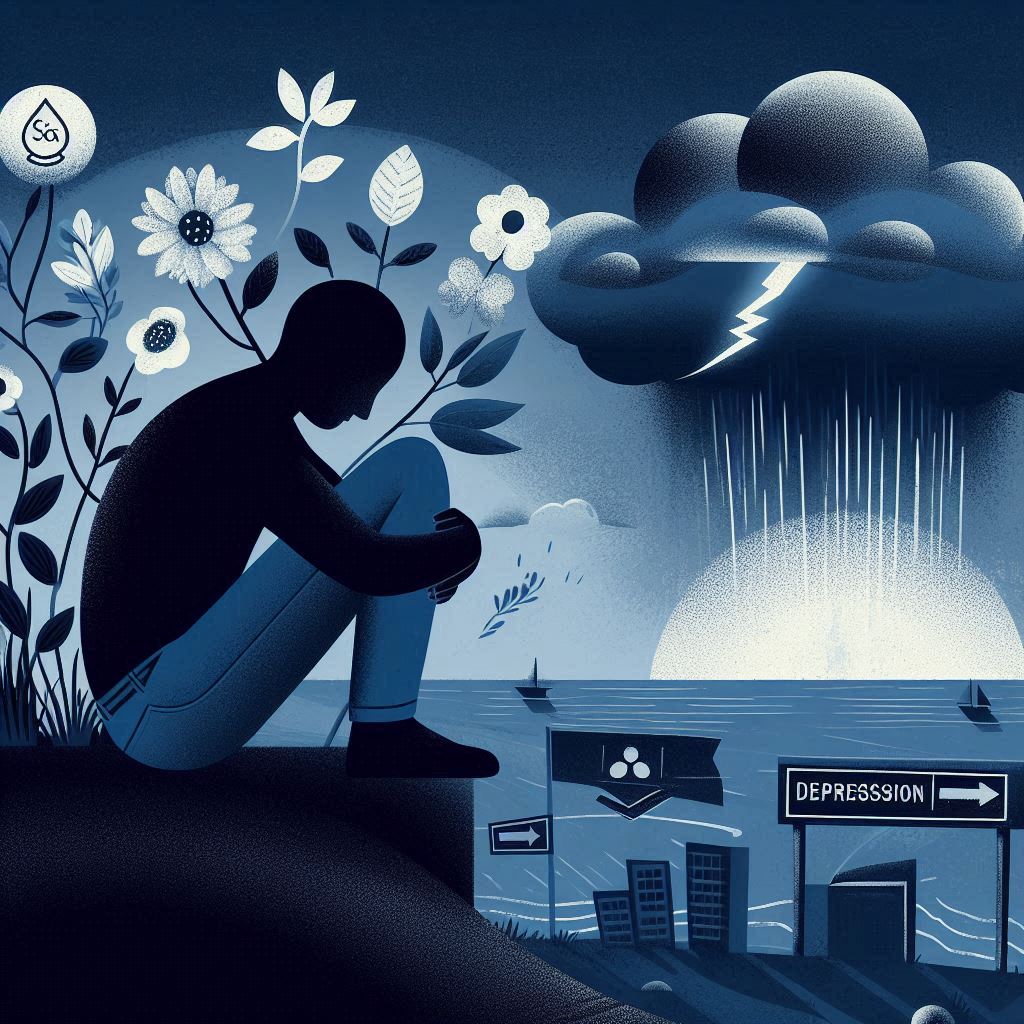Your cart is currently empty!

Understanding Depression: Signs, Support, and the Path to Healing!
Posted by:
|
On:
|
Understanding Depression: Signs, Support, and the Path to Healing!

Welcome to our mental health blog! Today, we talk about understanding depression—a topic that touches millions of lives yet is often misunderstood or overlooked. Whether you’re experiencing it yourself or supporting someone who is, knowing the signs, how to cope, and when to seek help can make all the difference.
What is Depression?
Depression is more than just feeling sad or having a bad day. It’s a persistent mental health condition that affects how a person feels, thinks, and manages daily activities. It can come in waves or linger quietly in the background, making even the simplest tasks feel overwhelming.
Depression doesn’t discriminate. It affects people of all ages, races, genders, and backgrounds. But with the right tools and support, it’s manageable—and treatable.
Common Signs of Depression
While everyone experiences depression differently, there are common signs to look out for:
-
Persistent feelings of sadness, emptiness, or hopelessness
-
Loss of interest or pleasure in hobbies and activities
-
Fatigue or lack of energy
-
Changes in appetite or weight
-
Difficulty sleeping or oversleeping
-
Feelings of guilt, worthlessness, or helplessness
-
Trouble concentrating, remembering, or making decisions
-
Physical symptoms such as headaches or digestive issues without a clear cause
-
Thoughts of death or suicide
If you or someone you know is experiencing several of these symptoms for more than two weeks, it may be time to seek professional support.
How to Get Help
Getting help starts with reaching out. Talk to your primary care provider or a mental health professional who can help you navigate what you’re experiencing.
If you live in Florida, Ellipsis Counseling Center offers individual virtual sessions for adults, making it easier than ever to access compassionate, personalized care from the comfort of your own space.
Additionally, consider these resources:
-
National Suicide Prevention Lifeline (988): Now known as the 988 Suicide & Crisis Lifeline, find someone available to chat 24/7 either by Text, Call, and Chat. And for Deaf/HOH
-
NAMI (National Alliance on Mental Illness): Offers education, advocacy, and support groups
-
Mental Health America (MHA): Provides screenings and information
- Psychology Today: Help you find a mental health professionals in your area.
-
Local community mental health centers
Coping With Depression
While therapy and sometimes medication are key parts of treatment, there are also ways you can support your own healing:
-
Stay connected – Isolation can worsen depression. Reach out to trusted friends or family.
-
Set small goals – Break tasks into manageable steps and celebrate little victories.
-
Move your body – Even gentle activity like walking or stretching can boost mood.
-
Practice self-compassion – Be gentle with yourself. Healing isn’t linear.
-
Create a routine – Structure can provide a sense of stability and control.
-
Journal or express yourself – Getting thoughts out of your head and onto paper can be a release.
Remember, progress might feel slow—but every step forward counts.
Living With Someone Who Has Depression
If you’re living with someone who has depression, it can be confusing, painful, and emotionally draining. But your support matters more than you know.
Here’s how you can help:
-
Educate yourself – Understanding what depression really is can change how you respond.
-
Be patient – Avoid offering quick fixes like “just think positive.” Depression isn’t a choice.
-
Offer consistent support – Let them know you’re there, even if they can’t express gratitude.
-
Encourage treatment – Suggest therapy or support without forcing it.
-
Set boundaries – Protect your own mental health while being supportive.
-
Celebrate small wins – Help them recognize their progress, no matter how small.
Support Groups and Community Resources
Connecting with others who understand can be powerful. Support groups can reduce isolation, provide insight, and remind you (or your loved one) that you’re not alone.
Takeaway:
If you or someone you know is facing mental health challenges, taking the first step toward treatment can make a profound difference. Early intervention, professional help, and community support are all tools that can lead to recovery and peace of mind. If you are ready to take that step, consider reaching out to professionals who can guide you through your journey. Whether through Ellipsis Counseling Center or another resource, help is always within reach.
Thank you for joining us on this journey to promote mental well-being and breaking the stigma. Stay tuned for more insights, tips, and stories on our mental health blog, and don’t forget to check out our Podcast and YouTube channel for deeper discussions and additional resources!
If you have a personal journey related to this topic that you would like to share, please feel free to email us at [email protected]. Let us know if you want to share it anonymously or with your name.
